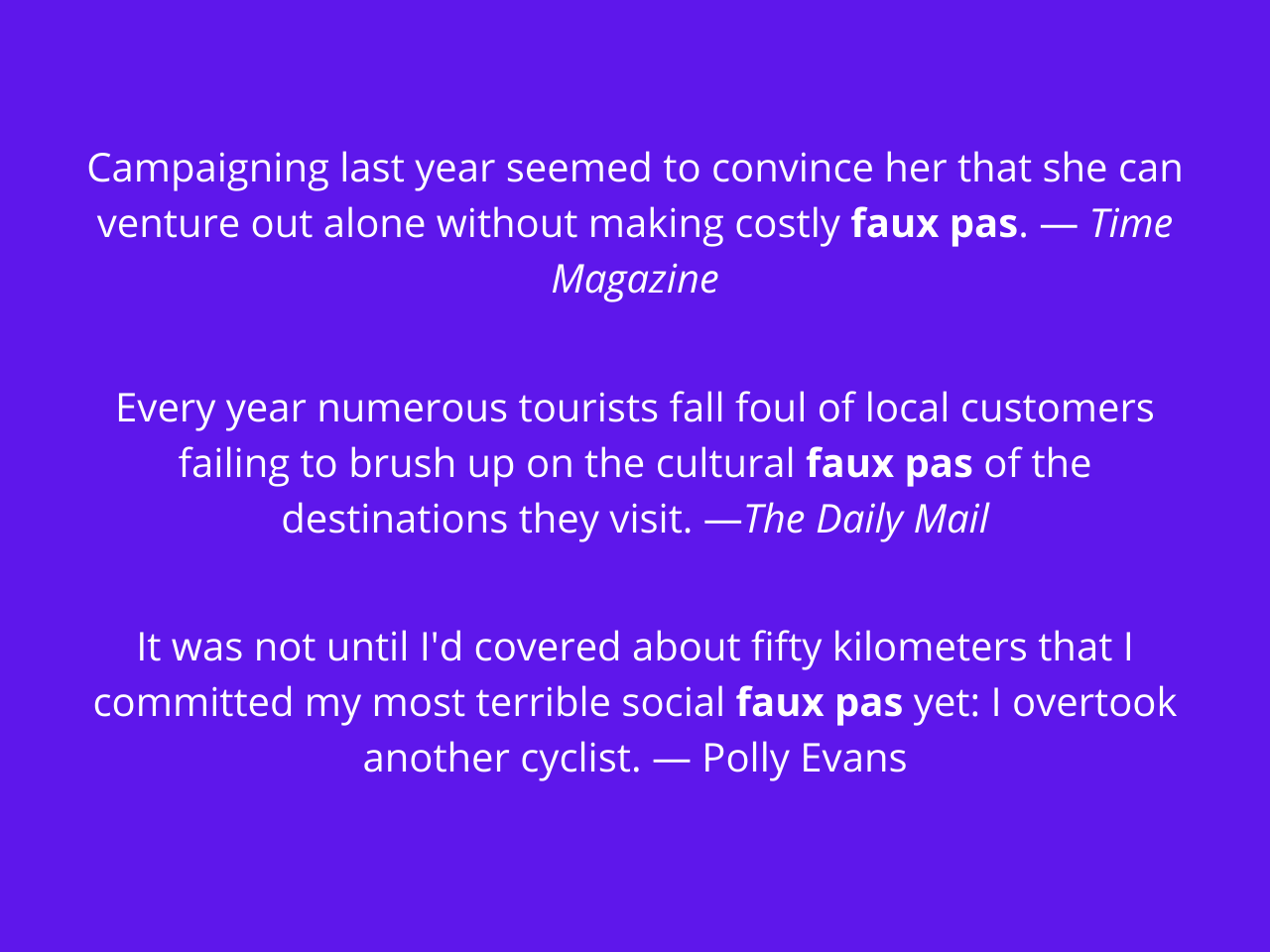The English and French languages have a long and complicated history, just like the history between France and the United Kingdom. But it’s not necessary to be a history buff in order to understand the influence of French on the English language. An impressive one-third of words in today’s English have origins in French. Plus, French was a facilitator of the Latin influence on the English vocabulary. In many cases, French words have been very thoroughly assimilated into the English language–so much so that it’s difficult to think about them as anything other than English. (Take the word constitution, for example.) However, there are some words that remain distinctly French, although they’ve been a part of the English language for centuries, and faux pas is one of them. Let’s take a look at its origin, meaning and some examples.
Pronunciation
Origin and Meaning
Ever since the 1670s, faux pas has been a loan phrase from French that’s commonly used in English. The two words that make up the phrase are faux, meaning “false,” and pas, meaning “step.” Over the years, faux has gained the meaning “fake,” as in “faux fur.” However, in the phrase faux pas, it means false. As a whole, the phrase refers to a “false step” or “misstep.”
Faux pas is most commonly used to talk about an embarrassing mistake made in a social situation. Therefore, saying some made a faux pas is equivalent to saying they made a social blunder. Interestingly, the meaning of the phrase isn’t far removed from its original meaning, “to compromise one’s reputation,” or “to make a breach of good manners.”
Plural: French
Of course, making social blunders is something that should be kept to a minimum. But we all know that’s not necessarily possible at all times, so there needs to be a way to refer to more than one.
Since faux pas is a French phrase, let’s look at the way it’s pluralized by the French. In its singular form, we know faux pas is pronounced [foh pah]. In French, the plural is written identically to the singular form, and the pronunciation remains the same as well.
Plural: English
For the most part, the use of faux pas in the English language is very similar to the original French usage. Faux pas is the correct spelling for both the singular and plural form of the phrase. However, in English, we differentiate between the two using varied pronunciations. The singular faux pas is pronounced [foh pah], but we add a “z” sound to the end of the plural faux pas, pronounced [foh pahz].
Examples of Use
Here are some real life examples:

Synonyms
- blunder
- error
- gaffe
- indiscretion
Related: Now learn about the often used expressions Moot Point and Running Amok
—
Want to sharpen your business writing skills? Discover our acclaimed online courses at syntaxtraining.com






